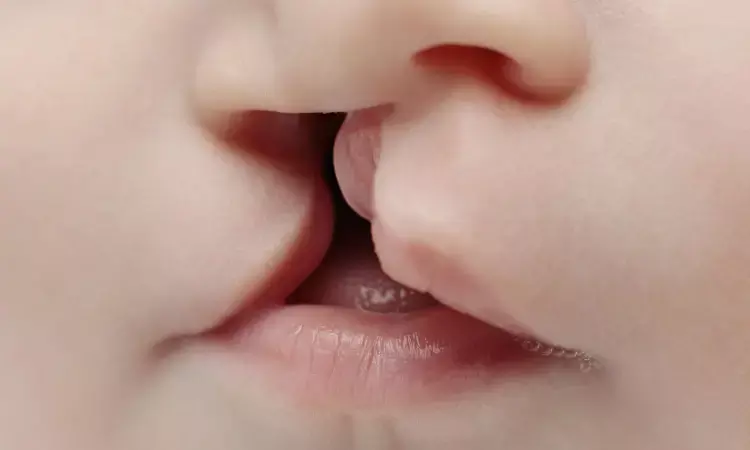- Home
- Medical news & Guidelines
- Anesthesiology
- Cardiology and CTVS
- Critical Care
- Dentistry
- Dermatology
- Diabetes and Endocrinology
- ENT
- Gastroenterology
- Medicine
- Nephrology
- Neurology
- Obstretics-Gynaecology
- Oncology
- Ophthalmology
- Orthopaedics
- Pediatrics-Neonatology
- Psychiatry
- Pulmonology
- Radiology
- Surgery
- Urology
- Laboratory Medicine
- Diet
- Nursing
- Paramedical
- Physiotherapy
- Health news
- Fact Check
- Bone Health Fact Check
- Brain Health Fact Check
- Cancer Related Fact Check
- Child Care Fact Check
- Dental and oral health fact check
- Diabetes and metabolic health fact check
- Diet and Nutrition Fact Check
- Eye and ENT Care Fact Check
- Fitness fact check
- Gut health fact check
- Heart health fact check
- Kidney health fact check
- Medical education fact check
- Men's health fact check
- Respiratory fact check
- Skin and hair care fact check
- Vaccine and Immunization fact check
- Women's health fact check
- AYUSH
- State News
- Andaman and Nicobar Islands
- Andhra Pradesh
- Arunachal Pradesh
- Assam
- Bihar
- Chandigarh
- Chattisgarh
- Dadra and Nagar Haveli
- Daman and Diu
- Delhi
- Goa
- Gujarat
- Haryana
- Himachal Pradesh
- Jammu & Kashmir
- Jharkhand
- Karnataka
- Kerala
- Ladakh
- Lakshadweep
- Madhya Pradesh
- Maharashtra
- Manipur
- Meghalaya
- Mizoram
- Nagaland
- Odisha
- Puducherry
- Punjab
- Rajasthan
- Sikkim
- Tamil Nadu
- Telangana
- Tripura
- Uttar Pradesh
- Uttrakhand
- West Bengal
- Medical Education
- Industry
Surgical repair of a cleft palate at six months of age less likely to result in velopharyngeal insufficiency: NEJM

Carrol Gamble, Ph.D. and Gillian Cairns, B.Sc., PG. Cert recently found out that infants who underwent primary surgery for isolated cleft palate at six months of age in adequately resourced settings were less likely to have velopharyngeal insufficiency at the age of 5 years than those who underwent surgery at 12 months of age.
There needs to be more clarification on whether primary surgery at six months is more beneficial than surgery at 12 months of age among infants with isolated cleft palate. There needs to be more data on outcomes in speech, hearing, dentofacial development, and safety. The practice varies substantially worldwide.
Based on data obtained from previous researchers, there is an association between delayed/late surgical repair and poor speech outcomes. There needs to be more data in this background, and there is a need for more data from controlled trials.
This study assessed functional outcomes among infants with nonsyndromic isolated cleft palate. These infants were medically fit and were referred to a specialized centre for surgery.
The team randomly assigned infants with nonsyndromic isolated cleft palate in a 1:1 ratio. There were two groups, namely 6-month and 12-month groups.
Independent assessments of quality-checked video and audio recordings were performed by speech and language therapists at 1, 3, and 5 years of age to evaluate the children's velopharyngeal insufficiency, speech development, postoperative complications, hearing sensitivity, dentofacial development, and growth.
The critical points of the study are:
- Researchers randomly assigned 558 infants at 23 centres across Europe and South America.
- Two hundred eighty-one infants underwent surgical repair at six months, while 277 infants underwent surgical repair at 12 months of age.
- In the six and 12-month groups, speech recordings from 235 infants and 226 infants, constituting 83.6% and 81.6%, respectively, were analyzable.
- In the 6-month and 12-month groups, 21/235 infants and 34/226 infants had Insufficient velopharyngeal function at five years of age with a risk ratio of 0.59.
- Postoperative complications were infrequent and similar in the 6-month and 12-month groups.
- A total of Four serious adverse events were reported but were resolved during the follow-up period.
Concluding further, they said medically fit infants who underwent primary surgery for isolated cleft palate in adequately resourced settings at six months of age were less likely to have velopharyngeal insufficiency at the age of 5 years than those who had surgery at 12 months of age.
As acknowledged, the study received funding from the National Institute of Dental and Craniofacial Research.
The study's limitations include trial recruitment ended before the target sample size was reached, causing a reduction in statistical power, exclusion of infants due to syndromes and developmental delay, surgical variation, etc.
Further reading:
BDS, MDS in Periodontics and Implantology
Dr. Aditi Yadav is a BDS, MDS in Periodontics and Implantology. She has a clinical experience of 5 years as a laser dental surgeon. She also has a Diploma in clinical research and pharmacovigilance and is a Certified data scientist. She is currently working as a content developer in e-health services. Dr. Yadav has a keen interest in Medical Journalism and is actively involved in Medical Research writing.
Dr Kamal Kant Kohli-MBBS, DTCD- a chest specialist with more than 30 years of practice and a flair for writing clinical articles, Dr Kamal Kant Kohli joined Medical Dialogues as a Chief Editor of Medical News. Besides writing articles, as an editor, he proofreads and verifies all the medical content published on Medical Dialogues including those coming from journals, studies,medical conferences,guidelines etc. Email: drkohli@medicaldialogues.in. Contact no. 011-43720751


